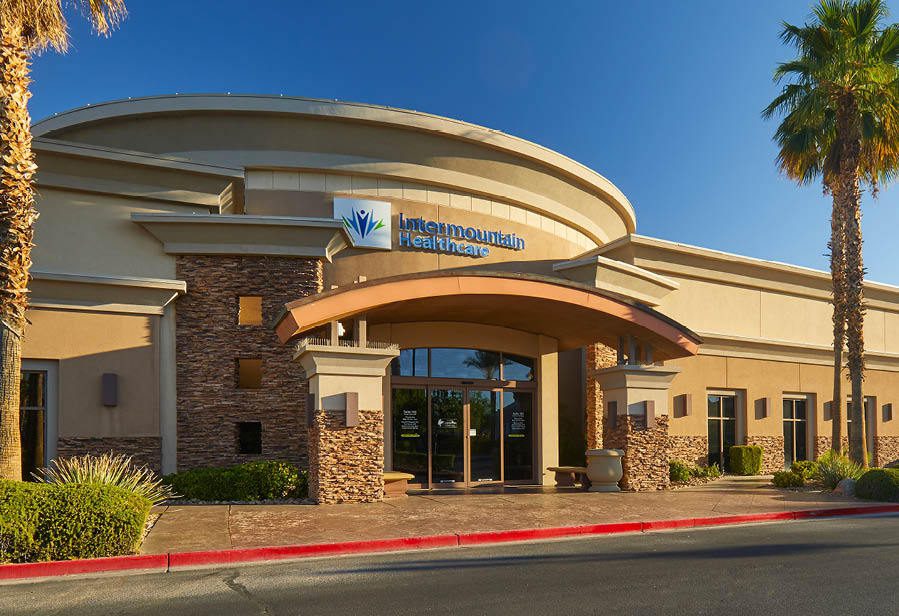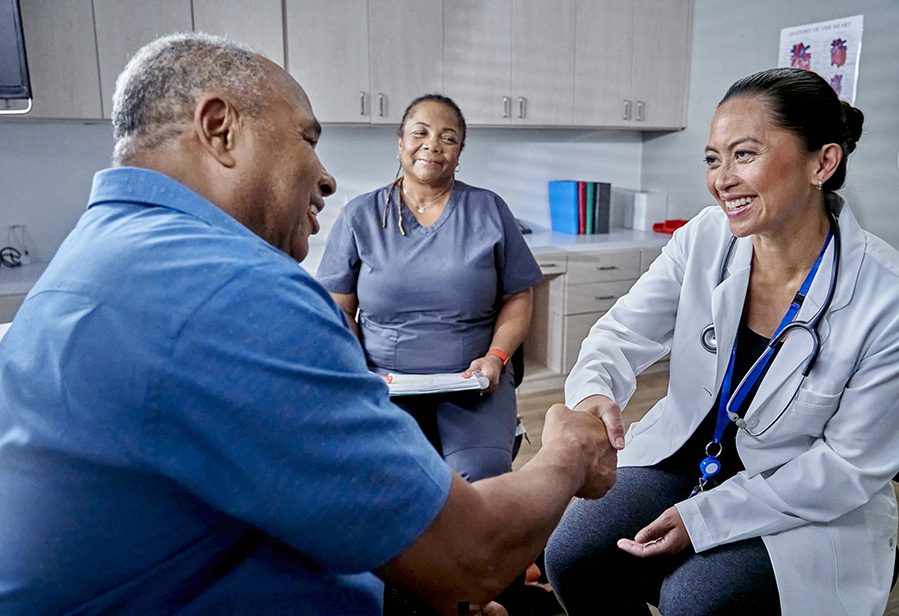Healthcare is centered around caregiver-patient relationships in which success can be measured in part by trust. Patients who trust their provider and feel like they can be honest, without fear of judgment, will provide vital information to inform the care that is provided and assist in mapping out a plan for continued health and wellness.

An important group of individuals in Nevada are helping to establish trust in healthcare for underrepresented populations across the Las Vegas Valley: Community Health Workers. A Community Health Worker, also referred to as a CHW, connects vulnerable populations with healthcare and social services providers, helping to navigate and create trust in healthcare and social service systems that may seem foreign.
Last fall, Intermountain Health received a 2022 Community Health Training Award, awarded by the U.S. Department of Health and Human Services’ Health Resources and Services Administration. This award was part of the American Rescue Plan and amounted to $225.5 million distributed among 83 recipients around the country. Intermountain Health received nearly $1.85 million over a three-year period and was the only organization in Nevada to be awarded with these funds for a community health worker apprenticeship. The money will serve people in Clark, Nye, Esmeralda, and Lincoln counties and allows Intermountain Health to train a total of 150 community health workers over a three-year period.
After year one, the Nevada Community Health Worker’s Association has trained a total of 40 Community Health Workers. These CHWs currently work at organizations such as the National Association of Mental Illness, Immunize Nevada, Nye Communities Coalition, The Center, UNLV School of Public Health, and more.
“With the Community Health Worker program, Intermountain Health can have a dedicated caregiver who will work to eliminate barriers to healthcare and facilitate community development,” said Samantha Roy, Community Health Program Manager at Intermountain Health. “As part of their role, Community Health Workers strive to improve the health and well-being of their communities. Due to their unique lived experiences, backgrounds, and cultural alignments, they can build trusting relationships because they have deep knowledge of the communities they serve.”
Community Health Workers are a group of public health workers that have a designated workforce classification and are deemed essential and critical infrastructure. With their unique core competencies recognized by governmental organizations, CHWs advocate for social justice and help to achieve health equity and well-being for all.
Since Community Health Workers are typically based in the communities they serve, they are uniquely suited to bring valuable information directly to the people who need it. As a conduit between the formal health system and vulnerable communities, CHWs can serve as a vital resource to help connect patients and community members to available services and resources. As liaisons between medical and social services and the community, they are an important part of the healthcare team that helps patients tackle the social determinants of their health. These determinants include housing, education, employment, food, or income securities that can come up during a patient’s appointment and so often can hold a patient back from managing chronic illnesses or seeking proper care in the first place. Studies have shown that a Community Health Worker can help improve patient outcomes and reduce costs as payment models shift to reward practices that deliver these results. They find patients’ successes and help them build new ones to manage chronic diseases.
The grant secured by Intermountain Health helps to diversify the workforce and bridge the gap between patients and their providers as CHWs serve as important messengers to make sure patients stay connected with their health care provider. Funds are partly used to provide the trainees with stipends to help address barriers that may make it difficult for individuals to attend and complete the training. They can be trained at one of two levels, a CHW I or CHW II. All trainees go through an eight-week training and can be certified as a CHW I after completion. Those seeking to become a CHW II require more mentored time and classes for additional responsibilities.
All trainees receive a $4,800 stipend for eight weeks, a Chromebook, and a 12-month data plan to help with field placement or continue their CHW II requirements. All 40 of the first-year trainees in Nevada are now eligible to apply and pay for their CHW I certification. Upon certification as CHWs, there may be potential opportunities with Intermountain Health or community partner organizations, and all will be assisted with job field placement.
The Community Health Worker model is based on community empowerment where natural helpers from within a community receive training and then spread health promotion messages to many others in a manner that is understandable and accepted by individuals in their communities. The model’s strength lies not only in a CHW’s ability to provide community members with culturally relevant health education, social support, and a connection to services in their community but also in their ability to serve as ambassadors to the healthcare system and policymakers and to advocate for their community.
“I chose to pursue the Community Health Worker program because of my deep passion for improving the well-being of underserved communities,” said Nick Fitterer, CHW I program attendee. “Witnessing the disparities in healthcare access and outcomes, I felt a strong calling to be part of the solution. The program’s emphasis on culturally sensitive care, community engagement, and preventive education resonated with my belief that everyone deserves equitable access to quality healthcare. By becoming a CHW, I aim to build trusting relationships, empower individuals to take control of their health, and contribute to narrowing the healthcare gap.”
If you are interested in signing up for this program, please visit the Community Health Workers Association’s website at www.nvchwa.org and fill out the registration survey to sign up for the 8-week class. Applicants from qualified counties are invited by email to apply for the grant; those with disadvantaged backgrounds and veterans will be considered high priority.
Intermountain Health is a non-profit healthcare system. In addition to caring for patients with commercial payers and charitable care, we rely on community support including grants like this and our Intermountain Foundation.
This program is supported by the Health Resources and Services Administration (HRSA) of the U.S. Department of Health and Human Services (HHS) as part of an award totaling $1.8 million with 0 percentage financed with non-governmental sources. The contents are those of the author and do not necessarily represent the official views of, nor an endorsement, by HRSA, HHS, or the U.S. Government.





